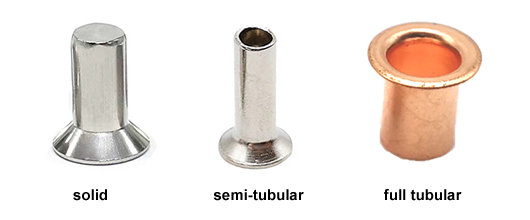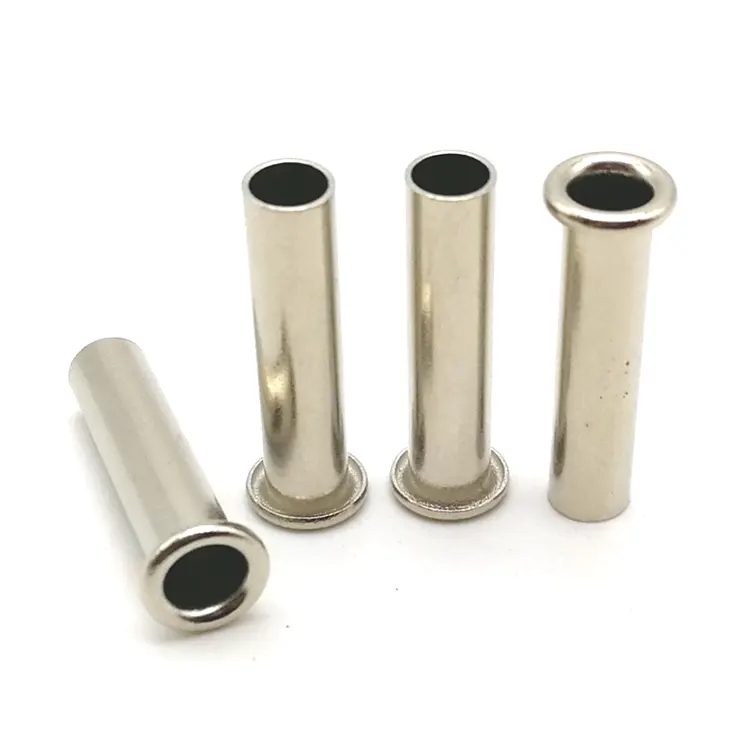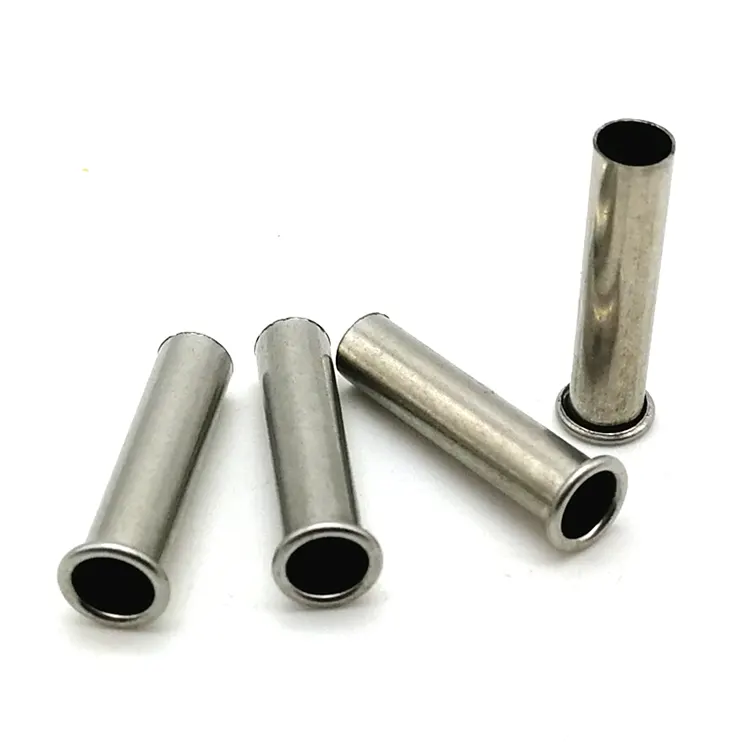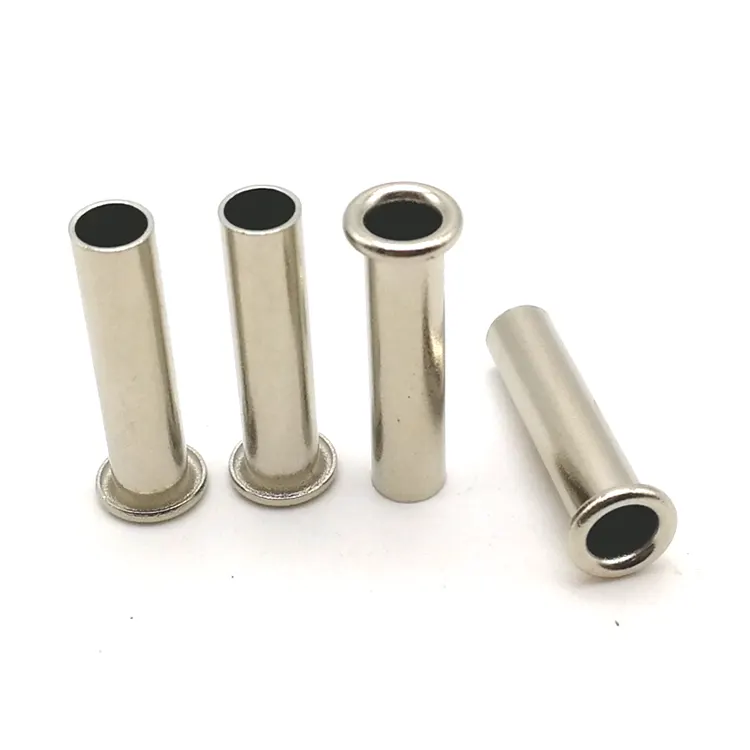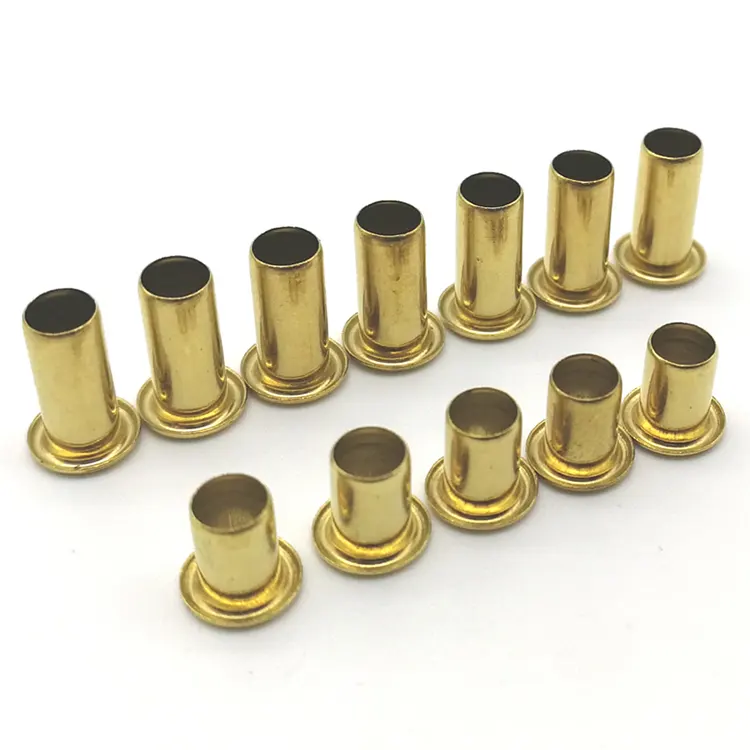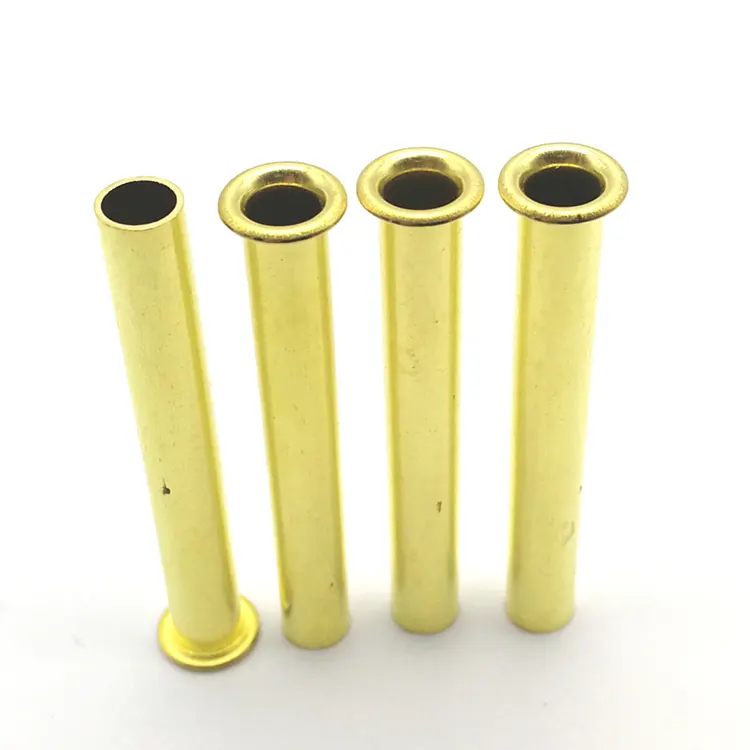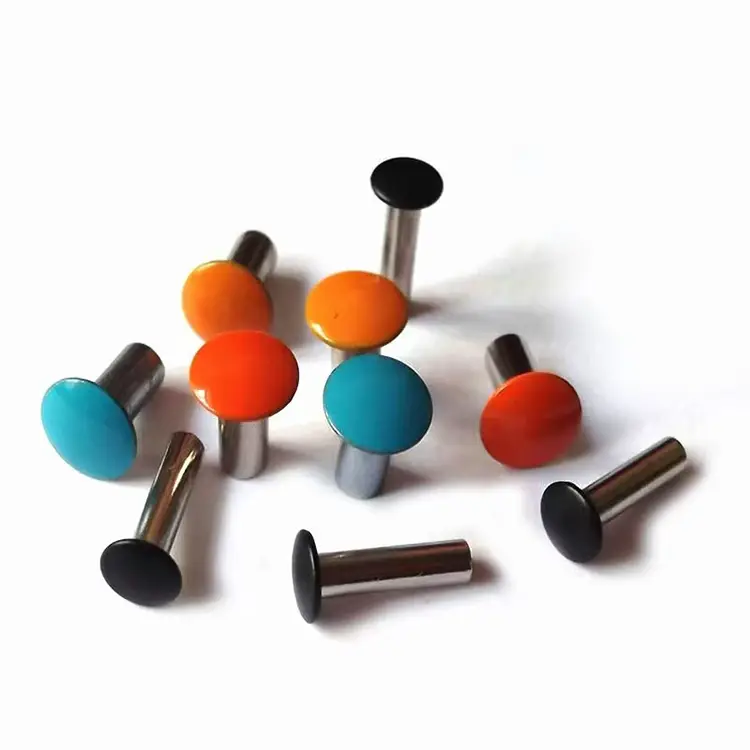Rivet
As one of professional manufacturer in China, Notin would like to provide you Rivets. And we will offer you the best after-sale service and timely delivery.
What is a rivet?
A rivet is a permanent mechanical fastener used to join two or more materials. Rivets work by inserting a metal pin into an aligned hole and deforming the end, creating a strong, secure, and durable connection. Unlike temporary fasteners like screws, rivets do not rely on threads, but instead form a permanent connection, making them ideal for applications requiring high strength, durability, and vibration resistance.
Classification of Rivets
Rivets are typically categorized by head shape, degree of hollowness, or material.
Based on head shape, rivets can be classified as flat head rivets, round head rivets, countersunk head rivets, mushroom head rivets, universal head rivets, truss head rivets, etc.

Based on degree of hollowness, rivets can be classified as solid rivets, semi-tubular rivets, or full tubular rivets.
Based on material, rivets can be classified as brass rivets, stainless steel rivets, steel rivets, aluminum rivets, copper rivets, etc.

What surface finishes are available for rivets?
Rivet surfaces are typically treated with rust-proofing treatments, primarily electroplating, including zinc plating, nickel plating, chrome plating, tin plating, gold plating, and silver plating. Electroplating is a common rust-proofing method for rivets. It applies a layer of plating to the rivet surface through physical or chemical methods. The plating effectively prevents corrosion and rust, while also providing a certain aesthetic effect.
Another special surface treatment method is head coating. Head coating is performed after the rivet is electroplated. This allows for a variety of colors on the rivet head, achieving an aesthetically pleasing finish.
Aluminum rivets cannot be electroplated, but they can be anodized. Anodizing also allows for a variety of color options, but the unit price is higher than electroplating.
Rust-proofing the rivet surface is crucial, effectively extending the rivet's service life and ensuring a secure connection. Different rust-proofing methods are suitable for different environments and applications, so the choice should be tailored to the specific situation.
- View as
Rivet paip keluli
Rivet paip keluli menawarkan kelebihan seperti ringan, kekuatan tinggi, rintangan kakisan, ketabahan yang sangat baik, dan kebolehpercayaan yang tinggi. Mereka sesuai untuk menyertai pelbagai bahan, seperti aloi aluminium, keluli, dan plastik. Selain itu, badan rivet paip keluli berongga dengan ketara mengurangkan berat badan mereka, menyumbang kepada keseluruhan struktur ringan.
Baca LagiHantar PertanyaanRivet paip keluli tahan karat
Rivet paip keluli tahan karat terdiri daripada badan dan topi, dengan saluran berongga di antara. Reka bentuk ini membolehkan rivet menjamin bahan dengan memerah atau berkembang semasa proses penyertaan. Keluli tahan karat dipilih terutamanya untuk rintangan kakisannya. Kromium dalam keluli tahan karat membentuk filem oksida di permukaan, mencegah karat dan memanjangkan hayat rivet. Keluli tahan karat juga menawarkan ketangguhan dan kekuatan yang sangat baik, menjadikannya sesuai untuk pelbagai keadaan alam sekitar. NUOTE Logam adalah pengeluar rivet paip keluli tahan karat di China selama lebih dari 10 tahun.
Baca LagiHantar PertanyaanRivet paip
Rivet paip biasanya digunakan dalam aplikasi di mana pengikat diperlukan tetapi kekuatan melampau tidak. Sebagai contoh, dalam peranti elektronik, mereka boleh digunakan untuk menyambungkan papan litar atau komponen perumahan. Dalam pembuatan perabot, mereka boleh digunakan untuk mengikat struktur logam atau kayu. Beberapa barangan hiasan atau peranti mekanikal kecil juga menggunakan rivet ini.
Baca LagiHantar PertanyaanRivet kelopak mata
Rivet eyelet adalah rivet serba boleh yang biasa digunakan untuk menyambungkan plat aluminium dan keluli nipis. Mereka dicirikan oleh titik memukau yang indah, struktur yang kuat, dan ketinggian laras. Mereka sesuai untuk menghubungkan pelbagai plat logam dan bahan yang berbeza. Rivet kelopak mata boleh digilap panas untuk membentuk lapisan pelindung di permukaan, yang mempunyai sifat anti-statik, tahan kakisan dan anti-alahan.
Baca LagiHantar PertanyaanRivet paip tembaga
Rivet paip tembaga adalah pengikat mekanikal biasa yang digunakan di pelbagai industri. Mereka adalah silinder berongga dan biasanya mempunyai brims pada setiap hujungnya. Rivet paip tembaga mencapai sambungan melalui ubah bentuk dan menawarkan kekonduksian elektrik yang sangat baik, rintangan kakisan, dan kemudahan pemasangan.
Baca LagiHantar PertanyaanRivet berwarna -warni dicat
Rivet berwarna -warni dicat adalah rivet dengan kepala dicat, mereka boleh dicat dengan warna yang berbeza, seperti merah, hijau, hitam atau apa sahaja yang anda suka. Nuote Metals menawarkan rivet dicat dalam pelbagai saiz, selamat datang untuk menghantar pertanyaan anda.
Baca LagiHantar PertanyaanWhat are the advantages of rivets over other fasteners?
1. Ease of Installation
Rivets are fast to install, and even fully automated for high-volume applications, resulting in a simple and efficient operation process.
2. Connection Reliability
The riveting process is standardized, with strict quality control, resulting in highly stable connections. Visual inspection allows for quick verification of connection quality.
3. Vibration and Impact Resistance
Rivets connect through deformation or interference fit, providing strong clamping force and excellent vibration resistance, capable of withstanding vibration and shock.
4. Low Cost
Rivets are easy to install and can be fully automated, saving significant labor costs.
What are the advantages and disadvantages of rivets made of different materials?
Aluminum Rivets
Advantages: Lightweight, reduces overall product weight, low cost, suitable for general civilian applications.
Disadvantages: Low tensile and shear strength, unsuitable for high-strength workpieces, prone to electrochemical corrosion when in contact with metals such as stainless steel.
Stainless Steel Rivets
Advantages: Strong corrosion resistance, high hardness, suitable for high-strength workpieces (such as marine equipment)
Disadvantages: Higher cost, typically more expensive than aluminum rivets of the same specification.
Brass and Copper Rivets
Advantages: Excellent conductivity (such as connecting electronic components), good corrosion resistance.
Disadvantages: Higher cost, more difficult to process.
Steel Rivets
Advantages: High hardness, high connection reliability, and wide applicability.
Disadvantages: Compared to other materials, iron rivets are more prone to rusting.
What are the main applications of rivets?
Rivets have a wide range of uses, from small items like a pair of scissors to large items like airplanes and ships, as well as in high-precision medical applications.
Industrial Manufacturing
Rivets are used in a wide variety of industrial fields, wherever there is a need to connect two or more materials.
Electronics
Rivets secure heat sinks and chips, providing both vibration damping and noise reduction, and are widely used in the cooling systems of electronic products such as computers and mobile phones.
Automotive
Rivets are widely used to connect components of automobile bodies and chassis, such as doors and hoods. Their lightweight and corrosion-resistant properties make them an indispensable joining method in automotive manufacturing.
Aerospace
In aircraft manufacturing, rivets are used to connect different fuselage components, such as wings and tailplanes. Millions of rivets create high-strength, corrosion-resistant joints. Aluminum and titanium alloy rivets are often used to connect components of corresponding materials, ensuring stability in extreme environments.
Rivets are used everywhere. The above examples only represent a small number of their applications. We see rivets everywhere in our daily lives, such as on scissors, folding beds, and strollers etc. Rivets can be customized to different sizes and materials depending on the application.
Nuote Metals has specialized in the rivet industry for over a decade. Our factory is located in Dongguan, a city known as the "World Factory," a city with a developed industry and convenient transportation. This allows us to respond quickly when acquiring raw materials and supporting surface treatments, meeting our customers' needs for quick access to samples and bulk orders. We produce 10 million rivets daily and have molds of various specifications, allowing us to produce rivets as small as 0.8mm and as large as 10mm. We welcome your inquiries and visits.






